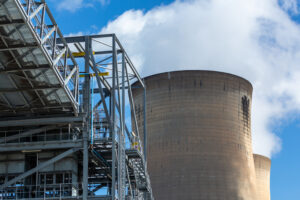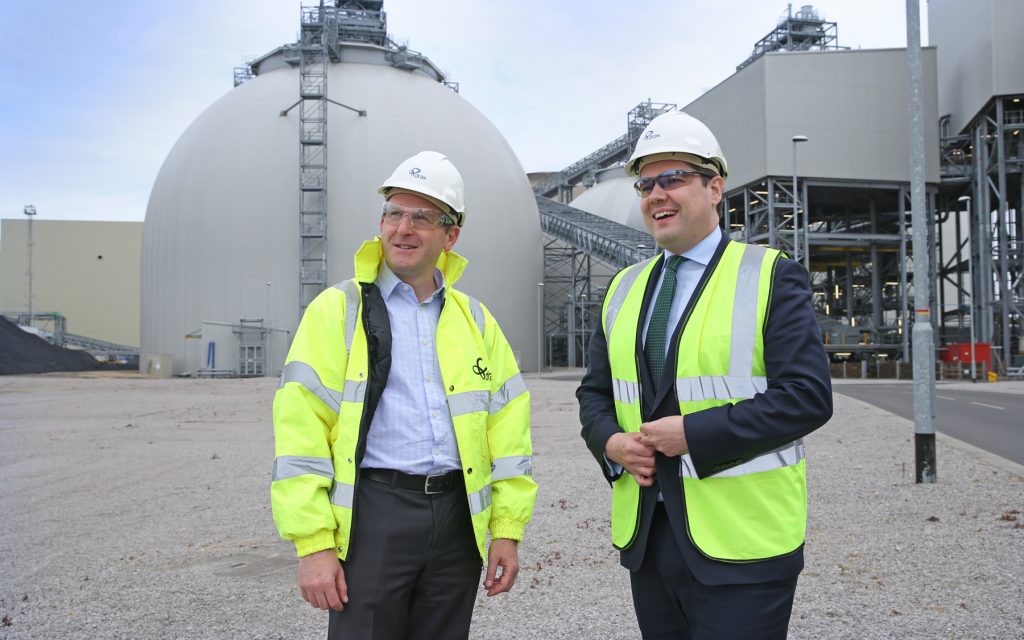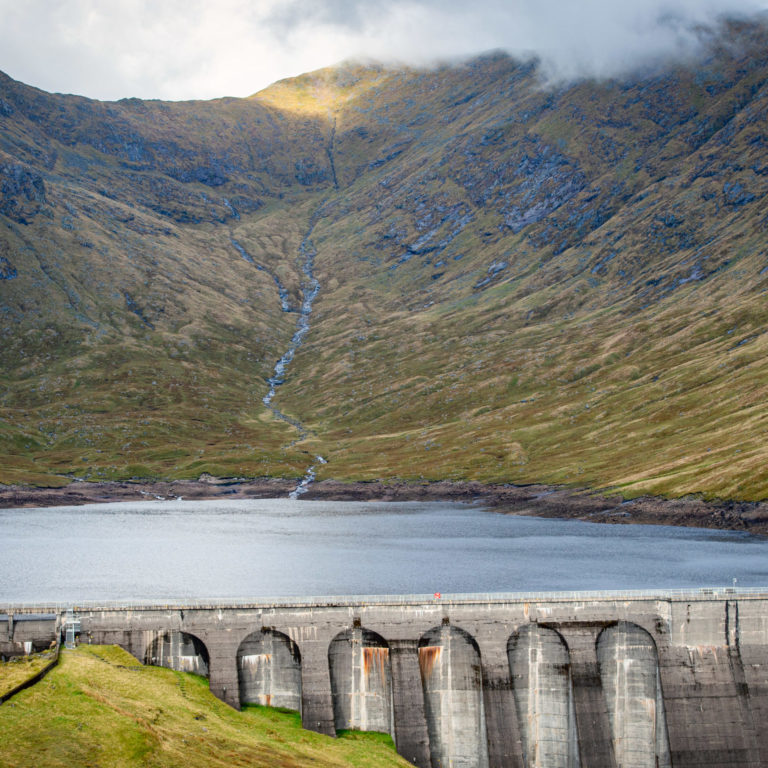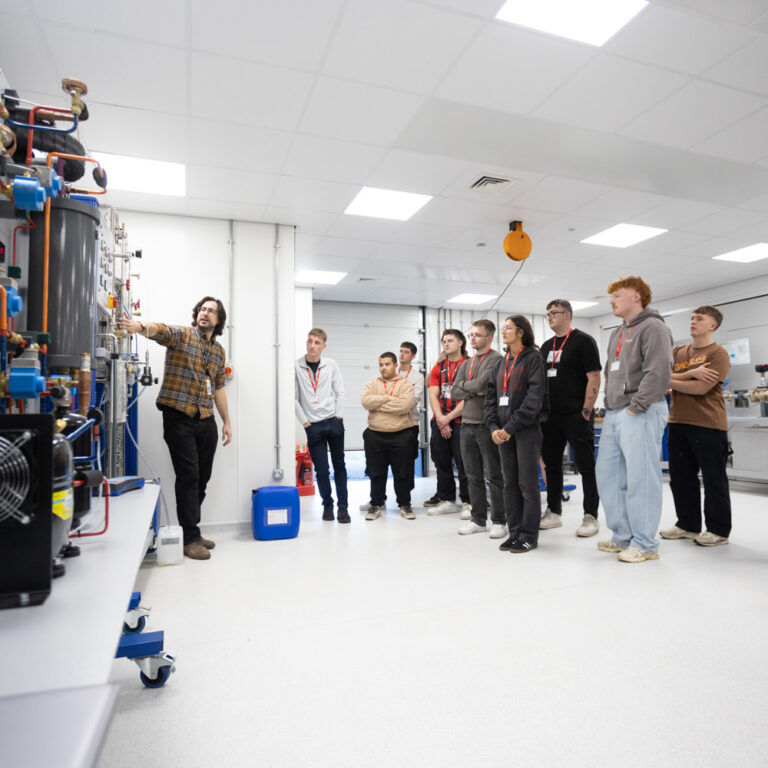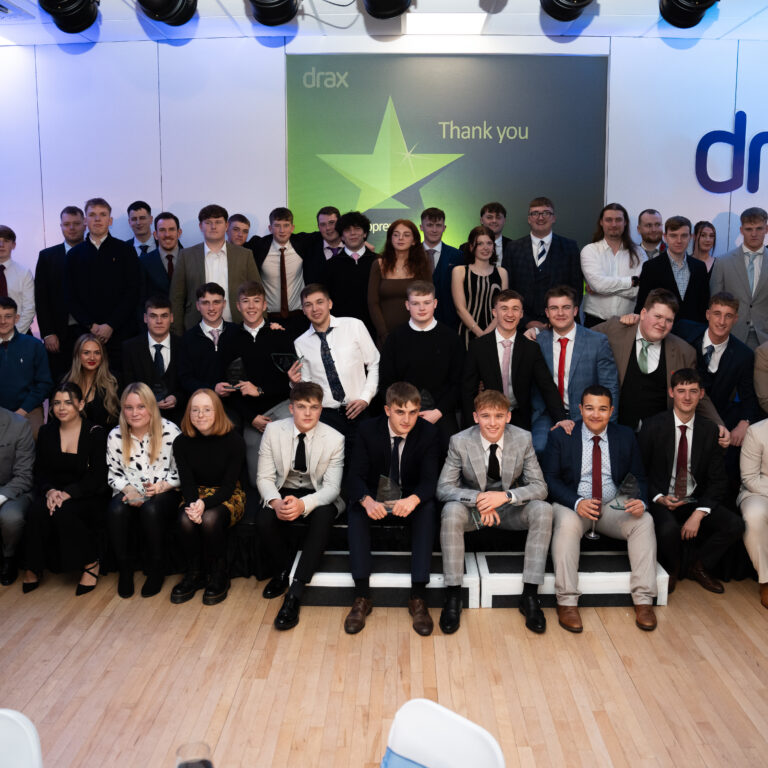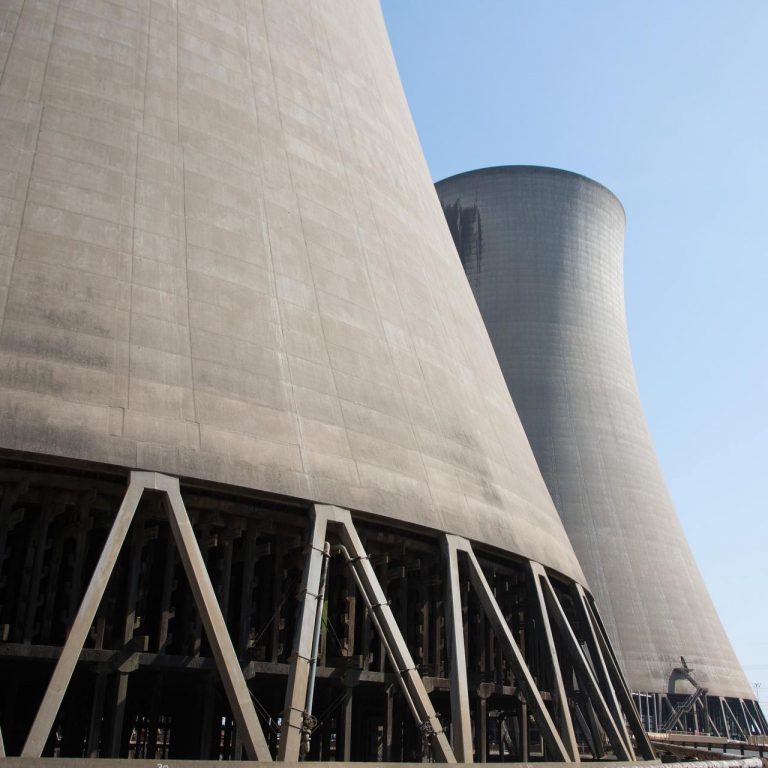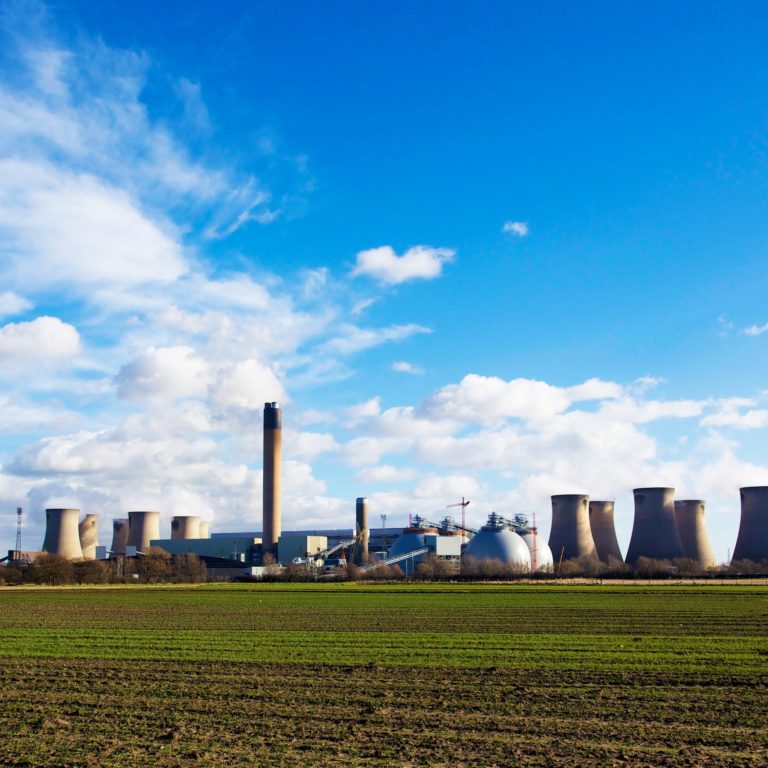UK Government Minister and Exchequer Secretary to the Treasury, Robert Jenrick MP, has visited Drax Power Station to find out about its world-first Bioenergy Carbon Capture and Storage (BECCS) pilot project.
Drax, the UK’s largest power station and Europe’s biggest decarbonisation project, has successfully converted four of its six generating units to run on sustainable biomass instead of coal, delivering carbon savings of more than 80 per cent.
Its innovative BECCS project started capturing carbon dioxide earlier this year and could transform Drax, which supplies 12% of the UK’s renewable energy, into the world’s first negative emissions power station. This would play a vital role in helping the UK to meet its climate change obligations.
If the BECCS pilot can be scaled up to deliver negative emissions, Drax Power Station would be helping to remove the gases that cause global warming from the atmosphere at the same time as electricity is produced.
The UK Committee on Climate Change’s Net Zero report stated that the country needs carbon capture, usage and storage technologies and hydrogen developed in regional industrial clusters if it is going to achieve a ‘net zero’ carbon economy by 2050.
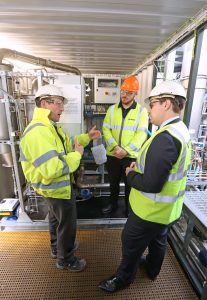
Andy Koss, Drax Power CEO, who met with the Minister and the team from the treasury officials, said: “We are delighted to welcome Robert Jenrick and the team from the Treasury to Drax. Drax is the biggest renewable power generator in the country and has played a vital role in helping the UK to decarbonise faster than anywhere else in the world.
“Our BECCS pilot project could enable Drax to go further to become the anchor for a new zero carbon economy in the Humber region, delivering for the environment and the wider UK economy. We are proud of our contribution to the region’s economy and are committed to supporting future growth across the Northern Powerhouse.”
Drax supports more than 5,700 jobs in the North of England and generates over £600 million for the Northern Powerhouse economy.
Exchequer Secretary to the Treasury, Robert Jenrick MP said: “The UK is a world leader in tackling climate change, and we have reduced our reliance on carbon faster than any other G20 country since 2000.
“But we will need new, innovative technologies to further reduce our emissions. Today I’ve seen first-hand Drax’s innovative Carbon Capture project which has the potential to make an important contribution to tackling climate change in the future.”
ENDS
Media contacts:
Ali Lewis
Drax Group Head of Media & PR
E: [email protected]
T: 07712670888
Notes to editors:
- Drax announced in February that is has started to capture carbon dioxide from its BECCS pilot project using technology developed by Leeds University spin-out company C-Capture. This is the first-time carbon dioxide has been captured from the combustion of a 100% biomass feedstock anywhere in the world.
- Since starting its innovative BECCS pilot project Drax has been talking to several industries about using its CO2 in their processes. This could be to produce concrete, within the food and drinks industry or creating synthetic fuels to use in hard-to-decarbonise sectors like aviation. It has set up a dedicated ‘Incubation Area’ at the power station that will give other technology companies the opportunity to test their processes on its carbon dioxide.
- If the BECCS pilot can be scaled up to deliver negative emissions, Drax Power Station would be helping to remove the gases that cause global warming from the atmosphere at the same time as electricity is produced.
- The Committee on Climate Change’s Net Zero report states that BECCS could generate up to 173 TWh of electricity by 2050, capturing up to 51 Mt CO2 – around half of the remaining carbon in the economy that the UK will need to capture to become ‘net zero’.
- The CCC’s Net Zero report also identified that at least one of the UK’s CCUS regional clusters should involve substantial production of low-carbon hydrogen by 2030 to stay ‘on track’ for net zero. It also recommends that infrastructure development for CCUS should start as early as possible, in all regional clusters with large industrial emissions.
- Today Drax is capturing a tonne of carbon dioxide a day from its pilot – once scaled up it could be capturing 16 million tonnes of carbon a year from its four biomass generating units.
About Drax
Drax Group’s ambition is to enable a zero carbon, lower cost energy future. Its 2,600-strong staff operate across three principal areas of activity – electricity generation, electricity sales to business customers and compressed wood pellet production.
Power generation:
Drax owns and operates a portfolio of flexible, low carbon and renewable electricity generation assets across Britain. The assets include the UK’s largest power station, based at Selby, North Yorkshire, which supplies six percent of the country’s electricity needs.
Having converted two thirds of Drax Power Station to use sustainable biomass instead of coal it has become the UK’s biggest renewable power generator and the largest decarbonisation project in Europe.
Its pumped storage, hydro and energy from waste assets in Scotland include Cruachan Power Station – a flexible pumped storage facility within the hollowed-out mountain Ben Cruachan. It also owns and operates four gas power stations in England.
B2B supply:
Drax owns two B2B energy supply businesses:
- Haven Power, based in Ipswich, supplies electricity and energy services to large Industrial and Commercial sector businesses.
- Opus Energy, based in Oxford, Northampton and Cardiff, provides electricity, energy services and gas to small and medium sized (SME) businesses.
Pellet production:
Drax owns and operates three pellet mills in the US South which manufacture compressed wood pellets (biomass) produced from sustainably managed working forests. These pellet mills supply around 20% of the biomass used by Drax Power Station in North Yorkshire to generate flexible, renewable power for the UK’s homes and businesses.
For more information visit www.drax.com





